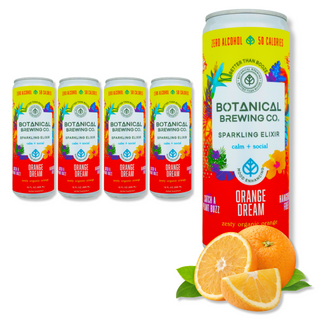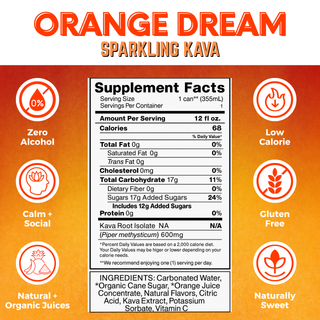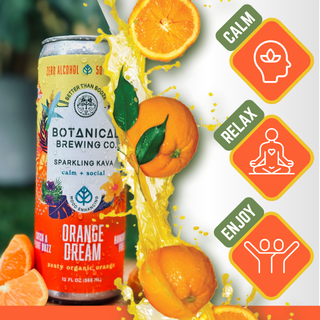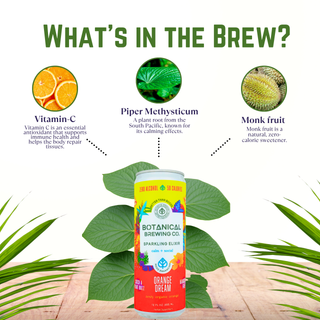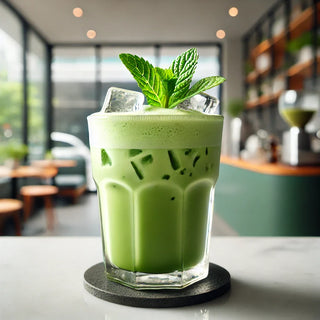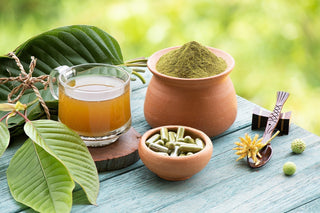Kava and Alcohol Interactions
Kava, a traditional beverage originating from the Pacific Islands, and alcohol, a widely consumed psychoactive substance, have been part of human culture for centuries. Kava, derived from the dried roots of the Piper methysticum plant, is known for its relaxing and anxiety-reducing properties, while alcohol, produced through fermentation, is a central nervous system depressant. As both substances are widely used, understanding the potential interactions between kava and alcohol is crucial for maintaining health and safety.
The kava drink, often consumed in ceremonial or social settings, has gained popularity beyond its traditional roots. At the same time, alcohol consumption is deeply ingrained in many cultures worldwide. However, combining these substances can lead to unexpected and potentially harmful effects, making it essential to explore the intricacies of kava and alcohol interactions.
Kava with Alcohol: The Interaction

Consuming kava with alcohol can lead to a potent and potentially dangerous combination. Both substances are central nervous system depressants, meaning they can slow down brain activity and bodily functions. When combined, their effects can be amplified, leading to an increased risk of adverse reactions and side effects.
The active compounds in kava, known as kavalactones, interact with the body's gamma-aminobutyric acid (GABA) receptors, producing a calming and relaxing effect. Alcohol, on the other hand, also affects GABA receptors and can enhance the sedative properties of kava. This synergistic effect can result in excessive drowsiness, impaired coordination, and a heightened risk of accidents or injuries.
Furthermore, combining kava supplements with alcohol can strain the liver, as both substances require metabolic processing by this vital organ. This increased burden on the liver may lead to potential liver damage, especially with prolonged or excessive use of the combination.
Alcohol vs Kava: Contrasting Effects
While alcohol and kava are both psychoactive substances, their effects on the body and mind differ significantly. Alcohol is known for its disinhibiting properties, often leading to impaired judgment, reduced coordination, and slurred speech. In contrast, the effects of kava are described as calming and relaxing, without the typical intoxicating or disinhibiting effects of alcohol.
- Alcohol can cause agitation, aggression, and impaired cognitive function, while kava is associated with a sense of tranquility and improved mental clarity.
- Alcohol consumption can lead to dehydration and hangovers, whereas kava is less likely to cause these unpleasant side effects.
- Kava is non-addictive and does not produce physical dependence, unlike alcohol, which can be highly addictive and lead to withdrawal symptoms when discontinued abruptly.
Due to these contrasting effects, some individuals have explored the potential of using kava as an alternative to alcohol in social or recreational settings. However, it is crucial to exercise caution and moderation when consuming any psychoactive substance, as excessive use can still lead to adverse effects.
Kava vs Alcohol: Safety Considerations
When considering alcohol vs kava, it is essential to prioritize responsible use and moderation for both substances. While they may offer different experiences, excessive consumption or misuse can increase the risk of adverse effects and potential harm.
For alcohol, moderation is key. Limiting intake to no more than one drink per day for women and two drinks per day for men is generally considered safe. However, individuals should be aware of their personal tolerance levels and avoid activities that require alertness or coordination while under the influence.
Regarding kava, it is recommended to start with small doses and gradually increase as needed, allowing time to assess the effects. Consulting with a healthcare professional, especially if taking medications or dealing with underlying health conditions, is advisable before consuming kava.
It is crucial to avoid mixing kava and alcohol altogether. Their combined effects can amplify the risk of sedation, impaired judgment, and potential liver damage. Responsible use involves making an informed choice between the two substances and never combining them.
Potential Consequences of Mixing Kava and Alcohol
The decision to consume kava vs alcohol should be made with caution, as mixing the two substances can lead to severe and potentially life-threatening consequences. Both kava and alcohol are metabolized by the liver, and their combined use can significantly increase the risk of liver disease or liver damage.
- Impaired judgment and coordination: The combined sedative effects of kava and alcohol can severely impair cognitive function, motor skills, and decision-making abilities, increasing the risk of accidents or injuries.
- Respiratory depression: The depressant effects of kava and alcohol on the central nervous system can lead to dangerously slow breathing rates, potentially causing respiratory failure in extreme cases.
- Nausea, vomiting, and dehydration: The combination may exacerbate gastrointestinal discomfort, leading to excessive vomiting and dehydration, which can be particularly harmful if prolonged.
- Increased risk of addiction and dependency: While kava is not typically considered addictive, its combination with alcohol may increase the risk of developing substance abuse disorders or dependence.
If you experience any negative reactions or concerning symptoms after consuming kava and alcohol, it is crucial to seek immediate medical advice. Prompt intervention can help mitigate potential harm and prevent further complications.
Conclusion
The interactions between kava and alcohol are complex and potentially hazardous. While kava drinkers may seek the relaxing effects of this traditional beverage, and social drinking is widely accepted, combining these substances can have severe consequences.
From increased risk of liver damage and respiratory depression to impaired judgment and potential addiction, the dangers of mixing kava and alcohol are significant. Whether consumed at a kava bar or through kava extract supplements, it is crucial to avoid combining these substances.
Ultimately, making informed decisions and prioritizing safety should be the guiding principles when considering kava or alcohol consumption. Consulting with healthcare professionals, especially for those with pre-existing medical conditions or taking medications, can provide personalized advice and guidance.
By understanding the potential risks and exercising moderation, individuals can enjoy the benefits of kava or alcohol responsibly, without compromising their well-being. Staying informed and making conscious choices is key to navigating the complex world of psychoactive substances.



